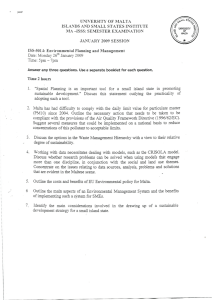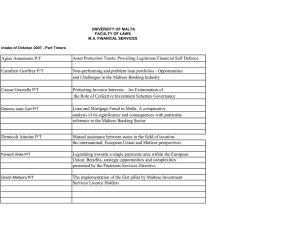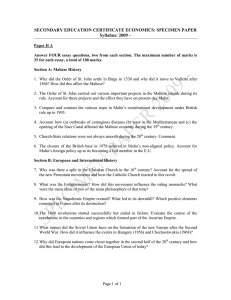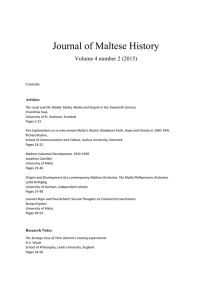ADVANCE QUESTIONS TO MALTA – ADD.1 CZECH REPUBLIC
advertisement
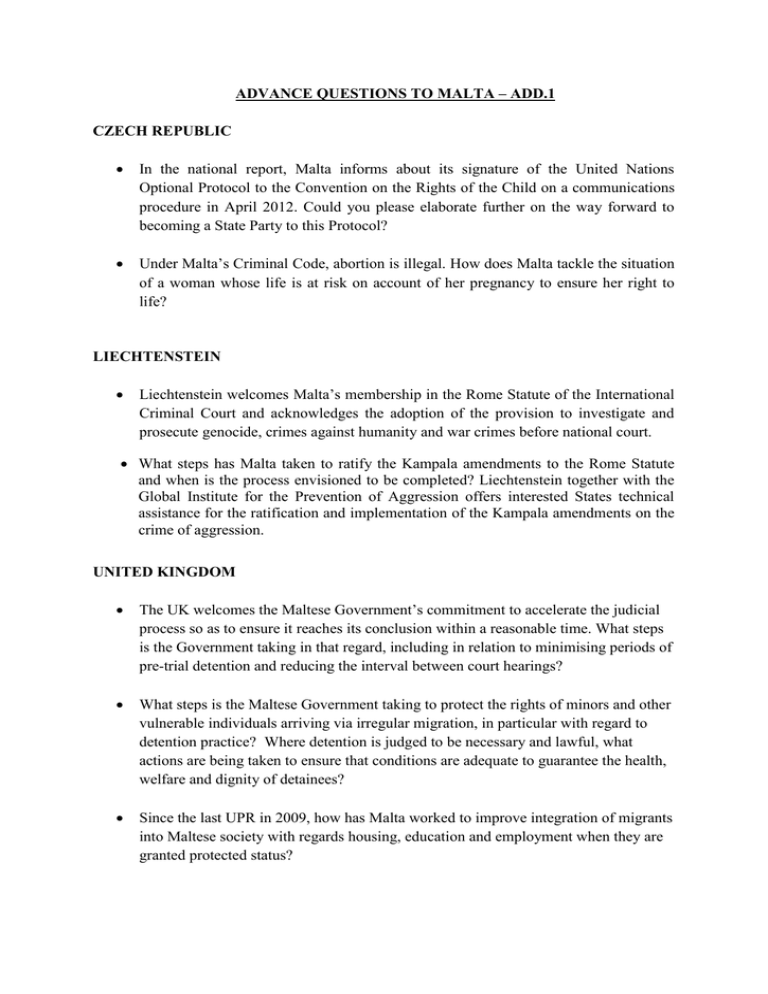
ADVANCE QUESTIONS TO MALTA – ADD.1 CZECH REPUBLIC In the national report, Malta informs about its signature of the United Nations Optional Protocol to the Convention on the Rights of the Child on a communications procedure in April 2012. Could you please elaborate further on the way forward to becoming a State Party to this Protocol? Under Malta’s Criminal Code, abortion is illegal. How does Malta tackle the situation of a woman whose life is at risk on account of her pregnancy to ensure her right to life? LIECHTENSTEIN Liechtenstein welcomes Malta’s membership in the Rome Statute of the International Criminal Court and acknowledges the adoption of the provision to investigate and prosecute genocide, crimes against humanity and war crimes before national court. What steps has Malta taken to ratify the Kampala amendments to the Rome Statute and when is the process envisioned to be completed? Liechtenstein together with the Global Institute for the Prevention of Aggression offers interested States technical assistance for the ratification and implementation of the Kampala amendments on the crime of aggression. UNITED KINGDOM The UK welcomes the Maltese Government’s commitment to accelerate the judicial process so as to ensure it reaches its conclusion within a reasonable time. What steps is the Government taking in that regard, including in relation to minimising periods of pre-trial detention and reducing the interval between court hearings? What steps is the Maltese Government taking to protect the rights of minors and other vulnerable individuals arriving via irregular migration, in particular with regard to detention practice? Where detention is judged to be necessary and lawful, what actions are being taken to ensure that conditions are adequate to guarantee the health, welfare and dignity of detainees? Since the last UPR in 2009, how has Malta worked to improve integration of migrants into Maltese society with regards housing, education and employment when they are granted protected status? What efforts have been made to ensure that, where the law requires it, Maltese public and private services are accessible to EU or third country nationals on the same terms as for Maltese nationals, avoiding discriminatory practice?

